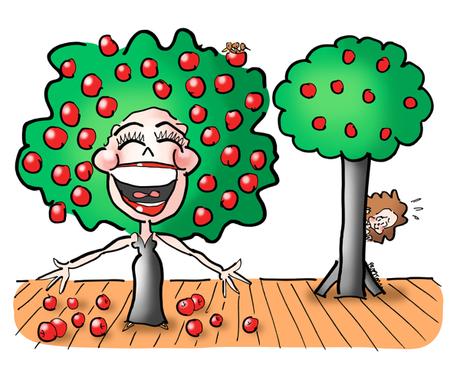
 Are you one of those people who presents one face to the world, and another when you’re by yourself?
Are you one of those people who presents one face to the world, and another when you’re by yourself?
Hey, me too!

We all are, really, at least to some degree.

I got the idea for this post from an article in the Wall Street journal called, 5 Principles for a Better Post-Pandemic You.

What?– you mean I wasn’t perfect before the pandemic??

For me, the most intriguing idea was that each of us has a front-stage and a backstage self. The author, Brad Stulberg, references a 1959 book by sociologist Erving Goffman called The Presentation of Self in Everyday Life.
According to Goffman, social interaction is like the theater. We’re all playing roles.

When we have an audience, we feel the audience has certain expectations, and we act accordingly. We try to behave in a way that makes us look good.

Mr. Stulberg says we’re in front-stage mode when we try to delude ourselves and be something we’re not. Our backstage mode is when we stop acting, and don’t care how we’re perceived by others.

I grew up in a family where appearances were very important. The big question was always: What will people think? So I tend to be in front-stage mode most of the time. (I suspect my being a first-born also has something to do with it.)

[Interesting: as I sit here alone typing this post, I’m in backstage mode– but not quite. I’m thinking about what impression this post will make on readers.]

Staying in front-stage mode for lengthy periods is risky, says Mr. Stulberg, especially if there’s a big gap between your front and backstage selves. You feel the deception. You know you’re a phony.

We tend to hide behind our front-stage selves because we’re afraid of appearing vulnerable, weak, not good enough. Mr. Stulberg argues that accepting our vulnerability is crucial. That doing so helps us know and trust ourselves more fully.

It also helps us forge more nourishing bonds with others. Stulberg cites a 2018 study that found that demonstrating vulnerability makes others perceive us as strong, grounded, and trustworthy.

Hm. Am I going to have to embrace my backstage self?? Sounds like there could be some advantages.

So how do you “demonstrate vulnerability”?


